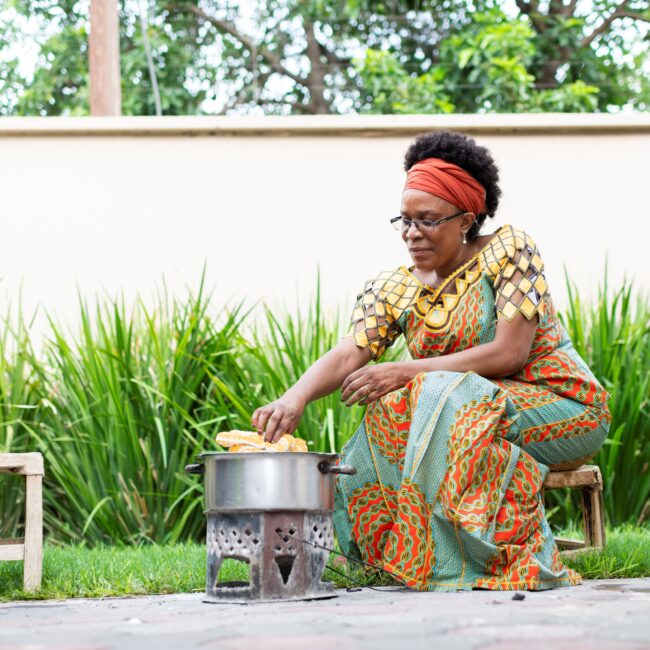2024 Summit on Clean Cooking in Africa: Challenges, Opportunities, and Commitments to Expanding Access to Clean Cooking Solutions Throughout the Continent
The largest summit on clean cooking in Africa was held this Wednesday at UNESCO’s headquarters in Paris on May 14, 2024, addressing the urgent need for clean cooking solutions across the continent.
While access to clean cooking is a global issue Africa is disproportionately affected with 900 million to 1.2 billion people relying on traditional, inefficient, and hazardous cooking methods such as open fires and biomass stoves. This reliance contributes significantly to health issues, with hundreds of thousands of premature deaths annually, particularly with two-thirds being women and children exposed to indoor air pollution. Additionally, the environmental impact is substantial, leading to deforestation and increased carbon emissions, which contribute to climate change around 1 gigatons of carbon emissions. The economic implications are also severe, estimated at around 1.4 billion USD annually as time spent gathering traditional fuels and suffering from health issues detracts from education, employment, and other productive activities, perpetuating cycles of poverty and inequality across the continent.
Country-Specific Challenges and Commitments
At the summit, African countries presented varied challenges and set forth their commitments to clean cooking.
- Health and Gender Challenges & Commitments: Countries like Tanzania aim to boost clean cooking adoption to 80% by 2034 to alleviate the burden on women, who are primarily responsible for collecting biomass. Sierra Leone, with only 0.8% access to clean cooking, is developing a comprehensive Green Growth Plan with the World Bank’s support, targeted for completion by June 2024. This plan includes a readiness assessment for electric cooking, the development of a national climate change act, and establishing a local carbon trading system.
- Economic and Technological Challenges: Togo and other nations discussed the economic implications and the technological transitions needed for cleaner cooking solutions. Togo discussed the limitations of improved biomass solutions and the impracticality of renewable energy cookstoves in regions with underdeveloped grids, advocating for LPG as a more viable, cleaner alternative and pushing for energetic independence across the continent.
Additionally, several countries and organizations, such as the Clean Cooking Alliance and the UNFCCC highlighted how clean cooking is underrepresented in national development commitments (NDCs), mentioned explicitly in only 60 countries’ NDCs despite its significant impact on global emissions. Discussions also covered the varied sources of finance needed to support clean cooking initiatives, with the Irish government advocating for layered finance combining international aid, national budgets, and private sector funds, while the President of Togo emphasized the necessity of public finance to ensure price stability for LPG and electricity for sustainable cookstove use.

2024 Summit on Clean Cooking
Despite significant challenges, clean cooking presents a compelling opportunity for rapid, cost-effective emission reductions. As highlighted by the president of the ADB emissions from cooking are comparable to the aviation sector. Remarkably, addressing this issue requires far less financial outlay than aviation, with only $4 billion annually needed to provide clean cooking solutions to all Africans by 2030—a stark contrast to the $170 billion required by aviation emissions reduction. This funding disparity highlights an opportunity for effective and efficient impact on public health and environmental sustainability. To bridge this disparity the summit also saw substantial financial pledges from international entities, which underscored the global commitment to addressing the clean cooking crisis:
- The African Development Bank (ADB) committed $2 billion over the next ten years and called for annual investments of $4 billion. This highlights a significant financial push towards transforming the cooking landscape in Africa.
- The European Union Commission pledged $400 million for clean cooking activities, demonstrating a strong commitment from the EU to support sustainable energy solutions in Africa.
- The Prime Minister of Norway announced a commitment of €50 million, focusing on reducing health impacts from indoor air pollution and promoting economic development through enhanced clean cooking technologies.
- Other commitments: France aims to integrate clean cooking into national energy plans and establish a dedicated coalition, while Denmark has committed $20 million to the World Bank’s clean cooking fund, plus an additional $72 million over five years.
For its part, EcoSecurities is deeply committed to advancing clean cooking solutions both in Africa and globally, undertaking several impactful projects. The company supports and has been involved in solar home kit Distribution and Cookstove Programs, which are active in countries like Rwanda, Kenya, Côte d’Ivoire, Cameroon, Togo, and South Africa. In northwest Zambia, EcoSecurities is facilitating the distribution of 15,000 improved biomass cookstoves. Additionally, the Community Cookstoves and Agroforestry project in Timor-Leste is set to install 200,000 improved cookstoves and develop 5,000 hectares of agroforestry, enhancing sustainable farming and cooking systems.
